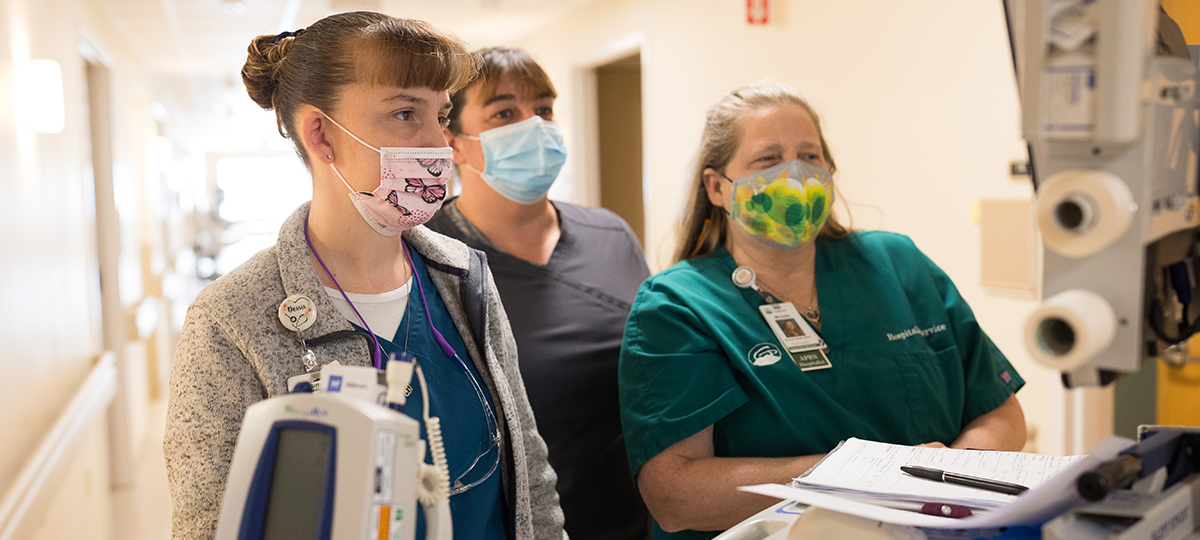

Inpatient Clinical Manager Dessa Rogers, Asst. Nurse Manager Tabitha Blanchard, and hospitalist Michelle Wade, APRN
essential – adjective
es·sen·tial | \ i-ˈsen(t)-shəl \
Definition:
1: of, relating to, or constituting essence : INHERENT
2: of the utmost importance : BASIC, INDISPENSABLE, NECESSARY
More than 20 million people work in health care in the United States, essential workers who together represent the largest employment sector in the country and who continue to grow in number as we meet the increased care needs of our aging population. At Gifford, more than 600 employees serve our patients here in central Vermont. Today and every day, every shift, they make a choice to rise up, clock in, put aside personal feelings, and do the essential work of providing care, either directly as part of our clinical team or indirectly in one of many other critical roles across Gifford.
Every day they are essential, and every day brings new challenges, but March 2020 brought perhaps the greatest collective challenge of our lifetime with the arrival of COVID-19 to our corner of the world, a global pandemic, and a state of emergency. Throughout the ensuing months, Gifford providers and staff adapted to new ways of working, ever-changing policies and protocols, and at the same time lived with the personal upheaval we all faced with lockdowns and quarantining and swift and far-reaching changes to and restrictions on how we educate our children, shop, visit friends and loved ones (online or not at all), travel (or not), and generally go about our daily lives (masked and socially distanced).
All the while, as with people the world over, team members faced fear and confusion.
“It was remarkably similar to the Haitian earthquake response,” said Gifford Chief Medical Officer Dr. Joshua White, comparing the early months of the pandemic to his experience providing care in the Caribbean country. “We didn’t know what was happening. There was no clear exit strategy. There was no clear understanding of risk to self. There weren’t enough supplies or personnel. But the team stepped up and got it done. The major difference is that everyone who went to Haiti volunteered. Our staff didn’t volunteer to deal with COVID. They woke up and were told, this is your new job. This is your new life. They’ve experienced COVID fatigue, stress, homelife struggles—their kids are struggling. The mental health component has been huge across our health care system as a whole.”
Despite the fear and stress, conflicting information and misinformation, the Gifford team rallied.
“They’ve been very, very adaptable and flexible, especially around the time when guidelines were changing seemingly every day, with new recommendations for this or that,” White said. “And a lot of staff were facing fears that many didn’t really expect. For example, if you’re a Behavioral Health worker you don’t expect to be facing these types of challenges in your role.”
Strategic planning and strong leadership through Incident Command were the touchstones of Gifford’s COVID-19 response.
“At the beginning, senior leadership spent endless hours planning at a time when we didn’t have a lot of information,” said Gifford Director of Nursing Karin Morrow, RN. “Restricting visitors, suspending elective procedures, and personal protective equipment (PPE) protocols and plans were developed and implemented quickly. Josh White’s research provided the basis for our plans, frequently putting Gifford out in front of the rest. Monica Boyd quickly became the trusted leader and organizer. Rebecca O’Berry continually looked for the ‘Gifford Magic’ to happen. Dan Bennett was our cornerstone; encouraging, asking the tough questions, holding us back at times, but immensely supportive. Planning and implementing specimen-collection clinics, vaccination clinics, and monoclonal antibody infusions consumed time, energy, and just-in-time education.”
“During all of this the entire Gifford team bent and adapted to continually changing plans and protocols,” Morrow said. “Throughout the care and compassion provided to our COVID prevention efforts, staff continued to provide for and support other patients requiring our skills, knowledge, and services without interruption. These patients were more acute since some were shying away from Primary Care visits. The lab increased their workload to accommodate COVID testing—both sending specimens out to other labs and completing some testing in house. Not one person or department could have accomplished all that was necessary without each other.”
Other clinical staff share Morrow’s take on their ability to adapt.
“Performance through the pandemic has been all about flexibility,” said Jamie Cushman, RN, who manages Gifford’s Emergency Department. “This is true for so many aspects of the nursing sector. We had to flex when a different set of staffing needs were required. An example of this was when staff from the OR flexed to the ED to help out when their census was very low but ours remained at near-normal values.”
“We also had to flex our skill sets,” Cushman said. “Nursing staff throughout the hospital accomplished this in so, so many ways. All staff educated themselves through online and hands-on methods to attain knowledge about caring for a ventilated patient, and staff learned and extensively trained on the modified use of personal protective equipment. We had to flex our understanding of what is best practice. This changed frequently, almost daily for a time, as our understanding of the virus changed. It was hard at times but through open communication and strong leadership, nurses were able to learn and relearn how to deploy best practices in many different ways throughout the event.”
Cushman also spoke to staff members’ flexibility in their personal lives to meet Gifford needs.
“Most astounding to me is how all of my colleagues have been able to flex their personal reality, both at work and at home, and continue to show up and be productive and positive team members at work,” she said. “This has been an all-encompassing event that has placed unprecedented stress on folks, from homeschooling kids to the unknowns at work, and immense social changes all around. That so many of us are able to conquer and continue to engage in such a positive way is downright inspiring.”
Cushman specifically called attention to one of her ED colleagues, Frances Staples, RN, as particularly exceptional.
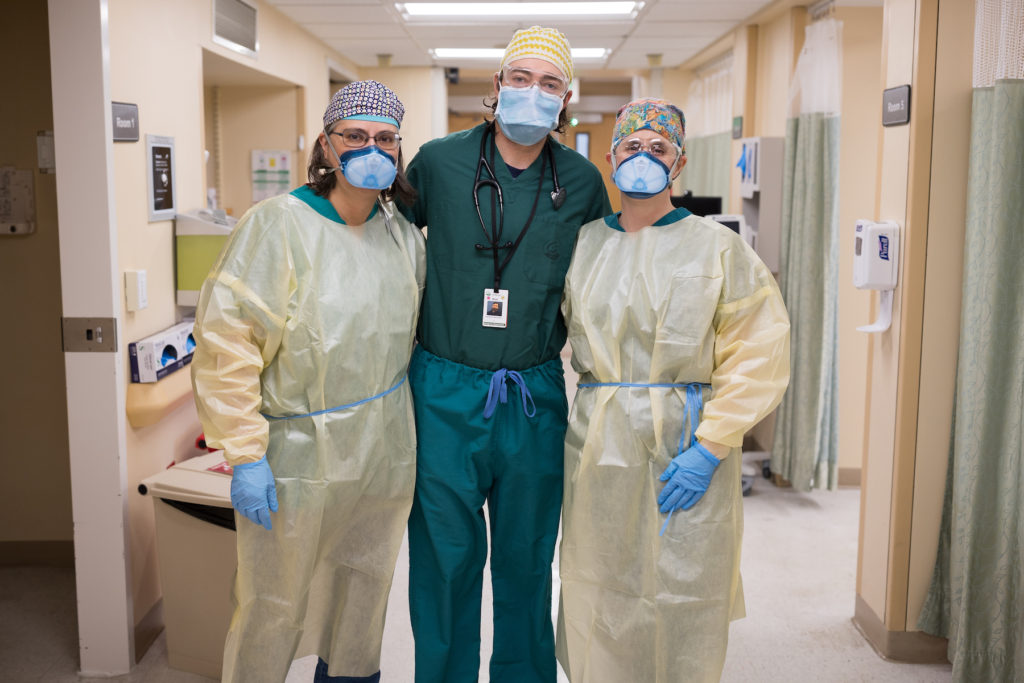
Frances Staples, RN, Matthew Bouteiller, PA-C, and Jamie Cushman, RN.
“Not because she is always right, not because she is the best informed, the steadiest, or the most skilled. Fran stands out because she is an outstanding team player and is always willing to try. Throughout this time Fran has made it her mission to be available to anyone that needed her throughout the organization. She has made herself available to contribute to or facilitate any project that she has been asked to and many more that she has simply volunteered for.”
Members of Gifford’s leadership team, who praised staff as a whole, also singled out colleagues who went above and beyond.
“The entire Gifford community stepped up to the plate to respond to COVID needs—such as working from home, furloughs, redeployment, PPE protocols, workflow changes, and being on the front line to care for our patients and community,” said Morrow.
She said that while it’s difficult to highlight individuals, a few, in addition to the senior leaders noted above, include Cushman; Becky Olmstead, RN; Jane McConnell in the Gifford Pharmacy; Laura Auszura in Materials Management; and Matthew Clayton in the Lab.
“Jamie was the pioneer COVID-specimen collector,” Morrow said. “She fearlessly began the collection process in the ED ambulance bay/parking lot. She developed the protocol for staff to obtain swabs for COVID testing in a safe manner.”
“Becky willingly experienced many COVID effects. She was furloughed but returned to be the primary COVID-specimen collector in collaboration with Marcello Reyes of Patient Registration. Becky also went ‘on the road’ to collect specimens and provide vaccinations when needed.”
“Jane’s can-do attitude and leadership supported the pharmacy staff to produce more to support our vaccination clinics and monoclonal antibody infusions. She never voiced negativity, although others may have been overwhelmed with the workload she and the pharmacy absorbed.”
“Laura was instrumental in securing supplies and equipment. She never wavered under the stress of shortages and substitutions. She was always willing to chase any opportunity to provide whatever was needed to support patient care and COVID activities, and always with a smile and word of encouragement.”
“And Matt Clayton’s ability to obtain COVID test supplies and in-house testing equipment, in addition to his leadership in the lab, was phenomenal. Lab staff accomplished great things during this past year.”
Among medical staff, Matthew Bouteiller, a physician assistant in the Emergency Department, is another standout.
“Matt really stepped up to the plate,” said White. “He participated in Incident Command and was asked out to do a lot of things outside of his comfort zone. He performed admirably.”
In sum, “the COVID pandemic brought out the ‘Gifford Best’ in everyone,” Morrow said. “The commitment to do what was needed shone brightly over hesitancy and fear. This Gifford engine that could, absolutely did.”
For many staff, like Cushman, that was never really in question.
“Generally speaking, folks who work in emergency medicine are fairly adaptable and innovative when they are in a situation where they have to be,” she said. “I think this is in large part due to the fact that in emergency medicine we are often working in conditions or through challenges that are similar to the ones that we have faced during the pandemic. We as a group are used to the expectation that you roll with whatever you are faced with, adapt, and overcome.”
On a personal level, Cushman added, she “was energized by being involved in so many important processes and working with our amazing leadership team that during this time more than any other was able to put aside differences, listen, and work together on finding solutions.”
#
New Faces
Providers who joined Gifford during the pandemic work in a wide range of areas, from Behavioral Health to Sports Medicine. Meet our newest team members:
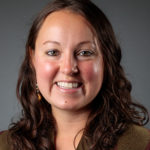 Emily Pizzale, a licensed independent clinical social worker who specializes in geriatric care, joined the Behavioral Health team. “I had heard really good things about Gifford—I was a patient here when I was a little girl—and enjoy working for a nonprofit, community” medical center.
Emily Pizzale, a licensed independent clinical social worker who specializes in geriatric care, joined the Behavioral Health team. “I had heard really good things about Gifford—I was a patient here when I was a little girl—and enjoy working for a nonprofit, community” medical center.
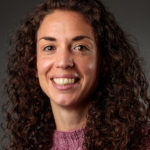 Physician Assistant Emily Swint joined the General Surgery team. “Working in surgery fills me with a lot of gratitude. I really love working with my patients, putting them at ease, and trying to meet them where they are.”
Physician Assistant Emily Swint joined the General Surgery team. “Working in surgery fills me with a lot of gratitude. I really love working with my patients, putting them at ease, and trying to meet them where they are.”
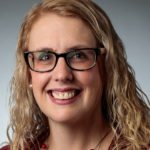
Family Nurse Practitioner Meghan Foster joined our Family Medicine team at Gifford Primary Care and provides care at a new school-based health clinic for Orange Southwest School District students. “It’s unique that we are starting the school-based clinic now. There’s a lot of opportunity to bend and flex with the needs of community members. The clinic is going to be successful only if we are meeting their needs.”
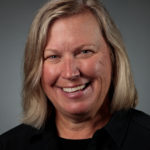 Family Nurse Practitioner Tracy Webster, who enjoys working with all ages—her patients range in age from newborn to 102—and all aspects of nursing, from surgery to trauma, joined the hospitalist team at Gifford Medical Center. “I follow the patient’s wants and needs. I present their choices and help guide decisions based on evidence.”
Family Nurse Practitioner Tracy Webster, who enjoys working with all ages—her patients range in age from newborn to 102—and all aspects of nursing, from surgery to trauma, joined the hospitalist team at Gifford Medical Center. “I follow the patient’s wants and needs. I present their choices and help guide decisions based on evidence.”
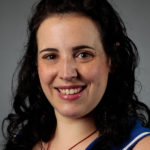 Mental Health Counselor Molly Weinberg joined the Behavioral Health team. “I really bring a sense of play and humor, love to make people laugh, and engage beyond the usual talk therapy. For some people, sometimes it’s difficult to express with words. Through storytelling, role-play, improvisation, and using the voice and body, they can come to a deeper understanding of themselves and their goals and dreams.”
Mental Health Counselor Molly Weinberg joined the Behavioral Health team. “I really bring a sense of play and humor, love to make people laugh, and engage beyond the usual talk therapy. For some people, sometimes it’s difficult to express with words. Through storytelling, role-play, improvisation, and using the voice and body, they can come to a deeper understanding of themselves and their goals and dreams.”
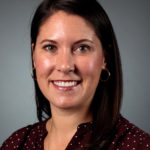 Sarah Decker, DO, joined the Gifford team to lead Sports Medicine at Sharon Health Center. “As an osteopathic physician, I value bringing the whole person into consideration, including mental, psychological, and spiritual aspects. This has become even more important in the current pandemic, as COVID is affecting much more than the physical aspect of our patients and athletes.”
Sarah Decker, DO, joined the Gifford team to lead Sports Medicine at Sharon Health Center. “As an osteopathic physician, I value bringing the whole person into consideration, including mental, psychological, and spiritual aspects. This has become even more important in the current pandemic, as COVID is affecting much more than the physical aspect of our patients and athletes.”
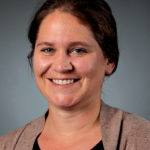 Psychiatric Mental Health Nurse Practitioner Hillary Liddick joined the Behavioral Health team. Hillary’s clinical interests are centered on psychotherapy, and she describes her approach to care as one that considers the whole person and incorporates not just medicine, but also, for example, diet, sleep, and exercise.
Psychiatric Mental Health Nurse Practitioner Hillary Liddick joined the Behavioral Health team. Hillary’s clinical interests are centered on psychotherapy, and she describes her approach to care as one that considers the whole person and incorporates not just medicine, but also, for example, diet, sleep, and exercise.
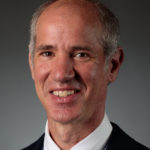 Andrew Dreslin, MD, joined the Urology team. “I like to get to know my patients, about their home life, and who they are. I also use a lot of educational items, to explain anatomy and thoroughly answer any questions a patient may have. I find providing education helps with patient outcomes. Additionally, because I find urology so interesting, I think that my enthusiasm for the things we talk about really comes through.”
Andrew Dreslin, MD, joined the Urology team. “I like to get to know my patients, about their home life, and who they are. I also use a lot of educational items, to explain anatomy and thoroughly answer any questions a patient may have. I find providing education helps with patient outcomes. Additionally, because I find urology so interesting, I think that my enthusiasm for the things we talk about really comes through.”
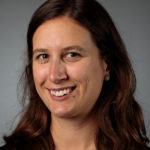 Nurse Practitioner Julie Holland joined the Primary Care team. Julie describes her approach to care as patient-centered, inclusive and holistic, “considering all areas of a patient’s life and creating shared goals based on a patient’s priorities.”
Nurse Practitioner Julie Holland joined the Primary Care team. Julie describes her approach to care as patient-centered, inclusive and holistic, “considering all areas of a patient’s life and creating shared goals based on a patient’s priorities.”
 Dijana Poljak, MD, joined the Obstetrics and Gynecology team. “I’m a firm believer in shared decision-making. I want to hear from my patients not only about their physical health but also their mental and emotional health. I want to hear their perspective, about what their goals are and what they want to get out of treatment.”
Dijana Poljak, MD, joined the Obstetrics and Gynecology team. “I’m a firm believer in shared decision-making. I want to hear from my patients not only about their physical health but also their mental and emotional health. I want to hear their perspective, about what their goals are and what they want to get out of treatment.”
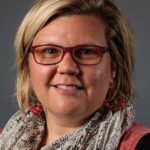
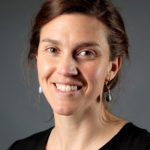
 Family Nurse Practitioners Katie John, Minta Trivette, and Azaliah Tillinghast joined the Primary Care team. “I try to meet the patient where they are. It’s about empowering patients by talking about how to make their care plan sustainable and work for them.” -Katie “I’ve been interested in health and science my entire life, and ultimately decided to become a nurse practitioner because of the opportunity to connect with individuals and support them on their healthcare journey.” -Minta “I enjoy being able to care for people in the same area I grew up. I like the small community feel where everyone knows everyone.” -Azaliah
Family Nurse Practitioners Katie John, Minta Trivette, and Azaliah Tillinghast joined the Primary Care team. “I try to meet the patient where they are. It’s about empowering patients by talking about how to make their care plan sustainable and work for them.” -Katie “I’ve been interested in health and science my entire life, and ultimately decided to become a nurse practitioner because of the opportunity to connect with individuals and support them on their healthcare journey.” -Minta “I enjoy being able to care for people in the same area I grew up. I like the small community feel where everyone knows everyone.” -Azaliah
###

